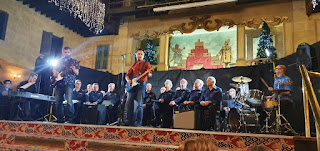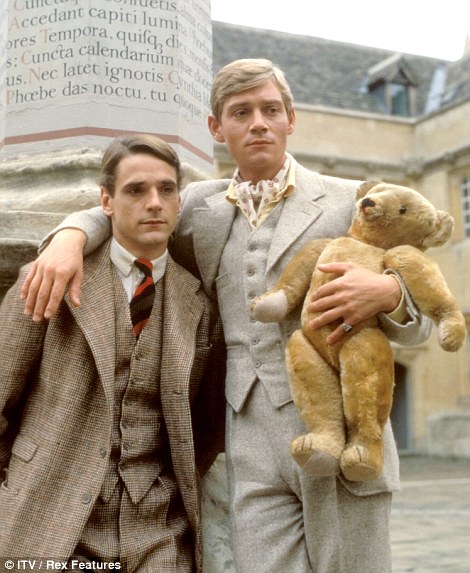2019: Year in Review
I began the year with a wondrous hangover. My friend cooked me a breakfast I almost had to reject. We then spent the morning watching back-to-back episodes of Bad Education. Did this augur well, or ill?The world around me, as it happened
As current affairs unfolded through the year, I looked on mostly with a sense of impotent horror. Would we leave the EU without a deal? No. Would we leave with a deal? No. Would parliament make up its mind? No. Would May survive? No. Would parliamentary democracy itself survive? It began to look doubtful. The parliament of 2017-19 was so foul that it needs its own name to mark it out for posterity. There is the Merciless Parliament of 1388; the Rump Parliament of 1648; I suppose the parliament that ended in 2010 will be known as the Expenses Parliament; this one needs a fitting name as well. Here are some of my suggestions:• Deadlock Parliament
• Parliament of Fouls
• Dishonourable Parliament
• Parliament of Liars
• Defectors’ Parliament
• The Parliament That Could Not Make Up Its Mind
Suggestions on a postcard.
The low point was after the Supreme Court overruled the Queen and sent the parliamentarians back to discuss Brexit some more – because, after three years of talking and voting for deadlock, they needed more time to talk about deadlock. Only, they chose to discuss something else: themselves. In scenes of fury and self-righteousness, parliament made itself irrelevant like it had never been before, and I hated the MPs for it; I hated them the more that they pitied themselves.
To cap it off, they refused for weeks and weeks to dissolve themselves.
With the election December, for the first time since 2010 we have stable majority government: the next five years will be without a major election or (one hopes, as one looks to Scotland) referendum. We have had, in the last five years, two referendums (both traumatic) and three general elections. That is too much for us to bear.
Personal objectives for the year that has passed
In my last review, going into 2019, I set myself six objectives, which I totally forgot about and ought really to have pinned to my bedroom wall. As it is, here they are, assessed:- Get the novel drafted to a standard that I can send it to an agent. Verdict: No. Utterly FAILED. I was too daunted when it dawned on me how much work needed to be done, more than mere tinkering. I have started, though, belatedly.
- Get a story or poem published somewhere. Verdict: FAILED, but not for want of trying. My energies dried up with continued failure. I am less sure why my stories were not taken, for I thought they were interesting. My verse is too traditional to be of much interest to the gatekeepers; local poets have effectively said as much.
- Get fit, not so much to lose weight as to tone up and be healthy. Verdict: Mixed. I seem to drift in and out of fitness. I was doing well with Parkrun in the Summer into the Autumn, but a foot injury has done for that. I shall resume in the new year.
- Finish the album of music and vanity-publish it: FAILED, because I began to question the point. But I have renewed impetus now.
- Play live more often: SUCCESS. Of all the objectives, this was the least likely, but I am in a band now, and the next year looks promising for us.
- Watch more local rugby: SUCCESS. The easiest to achieve, of course. I have adopted Tonbridge Juddeans as the club I support.
This time last year; and since
I began this year optimistically. Work was going well. I had my first flat. I had achievements I was justly proud of. Not much has changed since then. I still live in the same place, work in the same place, mix with the same friends. The year has been less about progress, more about stability, and in pursuing a life outside of work (but not always knowing how). There have been some changes. I have continued to lose weight – and this continues to be expensive. But I think I have rediscovered the art of buying clothes. When I was bigger, I unconsciously opted for darker, drab things that attracted no attention. I am now aware of a desire for the opposite; to wear eye-catching, even daring things that I would never have countenanced before.
There have been some changes. I have continued to lose weight – and this continues to be expensive. But I think I have rediscovered the art of buying clothes. When I was bigger, I unconsciously opted for darker, drab things that attracted no attention. I am now aware of a desire for the opposite; to wear eye-catching, even daring things that I would never have countenanced before.Added to this, I am also more aware of how welcoming my home can be for others. Especially with seating space and a large kitchen. I have started taking an interest in cooking and hosting, and I am shortly going to buy a cookbook – my very first! Probably Nigella.
Writing
Creatively, I am much stalled. I had a novel which I knew was miles away from being good enough; yet I was so blinded by what I had produced that I could not see how it ought to be. That problem now is solved; at least, I think so. I have radically altered the design; now, I just need to ‘action that’. Some of the pain will be in devising new passages; the rest of the pain will be in butchering and deleting much of what I have already slaved to achieve. Heart-breaking, in a way. But necessary.Away from prose, I got involved with the local poetry society, but I am ambivalent about it. They have very well organised monthly meetings with high-flying modern poets, usually dividing the evening between an open mic and the guest slot. But I was not inspired by any of the guests. The low point was when two of them, on a joint ticket, recited their collaborative project inspired by Brexit. It became a group therapy session; for those of us not grieving, it was uncomfortable and a bit insulting.
Music
 |
| Arcadian Dawn's first gig |
Outdoor pursuits
I began well. In February, I walked around Bewl Water, which I think is 13 miles. I even filmed my day. But I never made a video of it, nor did I do anything greater than a day’s walk this summer. I regret that. The greatest achievement was in August, walking from Tonbridge to my friend’s place in Maidstone, where he put me up for the night. I traced the route of the Medway and saw it in its full Edenic beauty. I had often thought Kent was overreaching slightly when it bills itself as ‘The Garden of England’, with the obvious resonance of Eden; yet I saw it, on the approaches to Maidstone especially. I wrote a number of pretty verses about the River Medway, before and after this walk. Together, they are basically a pilgrimage text and a love letter to Kent. I dedicated one of them to the outgoing GCSE students, who were good enough to tell me they liked it. I am doubtful any of it will ever see the light of day in publication, not for inadequacies, but because nothing I write ever finds favour with other poets. I am not modest; I know what I write is technically accomplished, but out of step with the times. This year was not my year; perhaps with some luck, I can begin to be published in the year ahead.
I wrote a number of pretty verses about the River Medway, before and after this walk. Together, they are basically a pilgrimage text and a love letter to Kent. I dedicated one of them to the outgoing GCSE students, who were good enough to tell me they liked it. I am doubtful any of it will ever see the light of day in publication, not for inadequacies, but because nothing I write ever finds favour with other poets. I am not modest; I know what I write is technically accomplished, but out of step with the times. This year was not my year; perhaps with some luck, I can begin to be published in the year ahead.Resolutions and objectives for 2020:
- NO dry January
- Observe Lent: give up coffee (did me the world of good last time)
- Reach a decision about the Reserves
- Keep up the exercise routine
- Do a proper walk of several days, across some county or other
- Get the novel done
- Get published (prose or verse)




